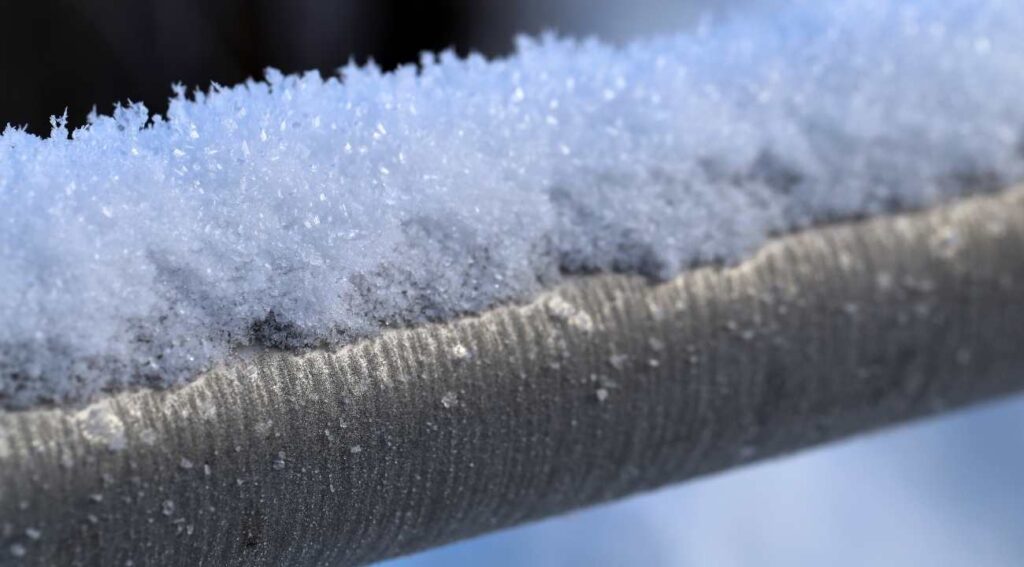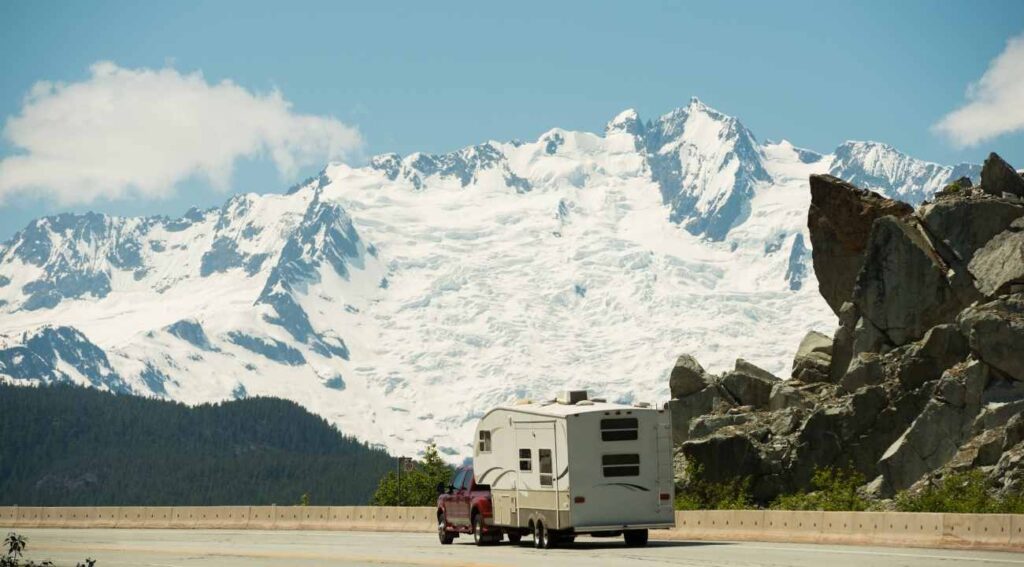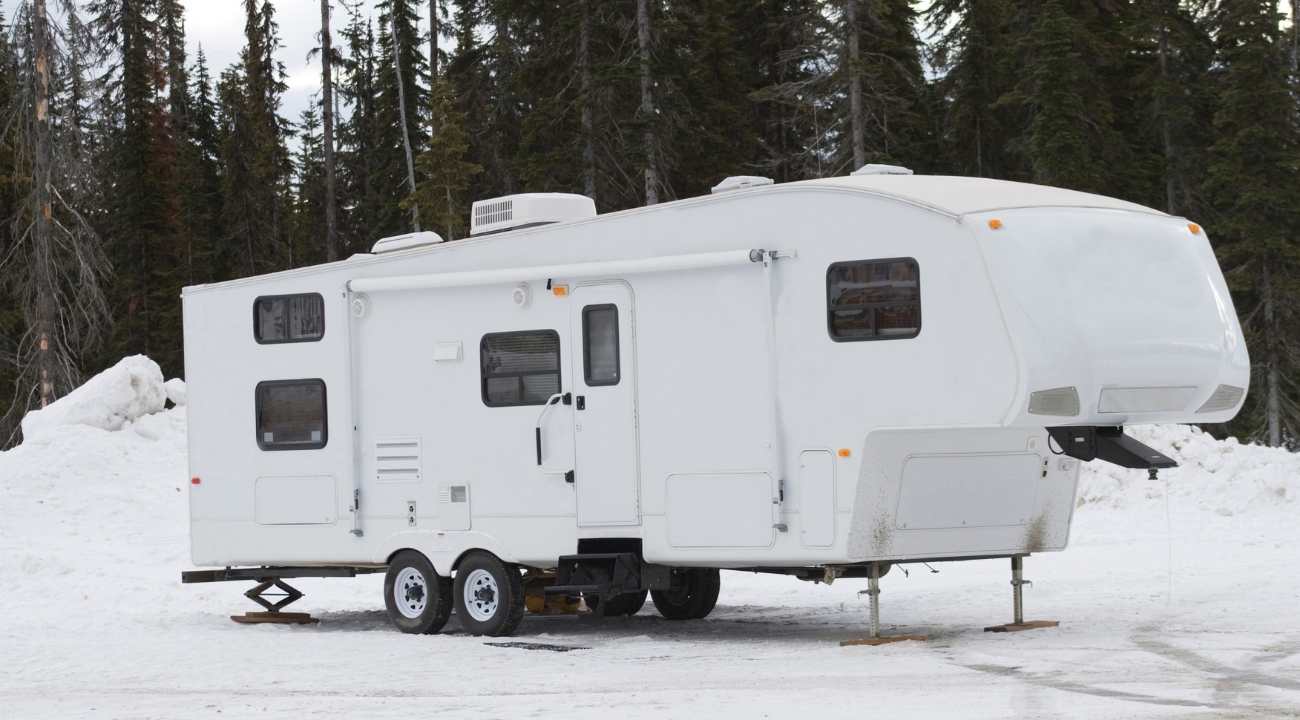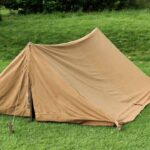Camping during winter in your RV can be exciting. However, many people face a common problem: their RV water lines can get frozen in sub-zero temperatures, causing severe damage to the RV’s plumbing system. It creates an unexpected inconvenience for you during camping and can cost a lot for repairs. Fortunately, this problem can be addressed with some precautions and preventive measures. So if you are planning to go on a winter outing with your RV soon and are worried about your RV pipes freezing, this article is a must-read for you.
Why And How RV Pipes Freeze?
RVs contain exterior water lines that include sewer hose, outside shower, etc., on their underbelly or wet bay. While camping in snowy weather, water inside these lines can freeze and create clogs. In extreme scenarios, the whole pipe can get frozen. Usually, pipes start to freeze at 20 degrees Fahrenheit if they remain exposed to the cold for too long. Although the thermal mass of your RV has the ability to slow down the freezing process, it won’t help if the temperature remains low for more than 24 hours.
If the RV pipes freeze unexpectedly overnight, you will find yourself in a tough predicament. Ice will block the drainage, and you will be unable to use the sink or bathroom. In addition, freezing the freshwater line will block your drinking water supply. Above everything, the ice clog makes the whole plumbing system vulnerable to severe damage, and even the pipes might need to be replaced. So, before you head out to camp in the cold, don’t forget to take the necessary steps to keep your RV pipes from freezing.

How To Keep RV Pipes From Freezing?
You can do a few things to keep your RV pipes from getting frozen and the whole plumbing system from getting damaged. While some of the best solutions require different materials and DIY techniques, the other solutions are basically a set of best practices. However, the most effective and long-term solutions will cost you around a hundred bucks and an hour of effort. So, here we are listing some of the easiest and most effective solutions to prevent your RV pipes from freezing.
Thermal Insulation And Heat Tape
The most productive solution you can come up with is insulating your RV pipes. To be more specific, you have to wrap your RV pipes and valves through the underbelly with non-conductive materials so that the water lines are not exposed to frigid weather. For this you will need reflective aluminum papers, foam coating or rubber tubes, PVC tapes, etc., to cover the pipes. Moreover, you can stick the heat tapes in a spiral pattern inside the coating as an added layer of protection to make the insulation more effective. The best thing about this setup is that it will last for a long time and require low maintenance.
Install A Tank Heating Pad
The freshwater water tank under an RV usually remains directly exposed to the weather, making the water inside extremely cold at night. When this water runs into the pipes, they tend to freeze more rapidly. So, you can install an adhesive tank heating pad underneath to prevent this from happening. The pad will produce heat and keep the water warm. As a result, the freshwater hose will also remain warm as the water flows through it.
Adding Non-Toxic Antifreeze
Before heading out for winter camping, winterizing your RV is necessary to prevent frozen pipes. This process requires an antifreeze solution that lowers the freezing point of water and helps to regulate the water temperature inside the pipe. This propylene glycol-based solution is non-toxic, non-flammable, and safe for RV plumbing. To apply this, you have to drain all the lines, the water heater, and the water tanks entirely using black and gray valves. After that, you have to flush the whole plumbing system with antifreeze, and you are good to go.
RV Skirting
Skirting around the bottom of your RV is also an effective measure to make the exterior components insulated. After parking the vehicle, you can cover the whole undercarriage to prevent airflow underneath your RV during those cold winter nights. You can use vinyl materials, plywood, or insulation boards to make the skirt. It will not only protect the pipes running through the underbelly from being frozen but will also ensure a warmer interior as an extra advantage.

Keep Your Wet Bay Warm
Keeping the wet bay warm is crucial as it contains a freshwater filter and multiple necessary hoses inside. Moreover, some RVs contain an outside shower inside the bay. Unfortunately, these lines can freeze very fast when you open up the wet bay. So, you can consider placing a heater inside the bay so that the pipes remain at standard temperature while you are camping in frosty weather.
Tips And Tricks To Prevent RV Pipes From Freezing
- Drain the whole plumbing system when the temperature is frigid outside.
- Try to keep the water tanks at least 25% full.
- Empty the sewer hose and close the gray valve when the temperature is too low.
- Keep the internal temperature of the RV warm.
- Keep the sink cabinet open to allow warm air to flow around the hoses.
- Park the RV at a comparatively warmer location.
Final Thoughts
Camping in winter can be troublesome if your RV pipes freeze, and it can be detrimental to the overall lifespan of your RV if this happens frequently. However, it is always easier to stop a problem from occurring than to fix it after the damage has already been done. So, before taking your RV for a winter outing, you should take proper precautions to keep the plumbing system from freezing.

William Arrovo seeks thrills and laughter in everything he comes across. He is a fun loving person with a zest of exploring the breathtaking places around the globe. He feels content in sharing his experiences of travelling to various countries. He is grateful about enriching himself with a myriad of cultures and rejuvenating his soul while staying outdoors.









Leave a Comment